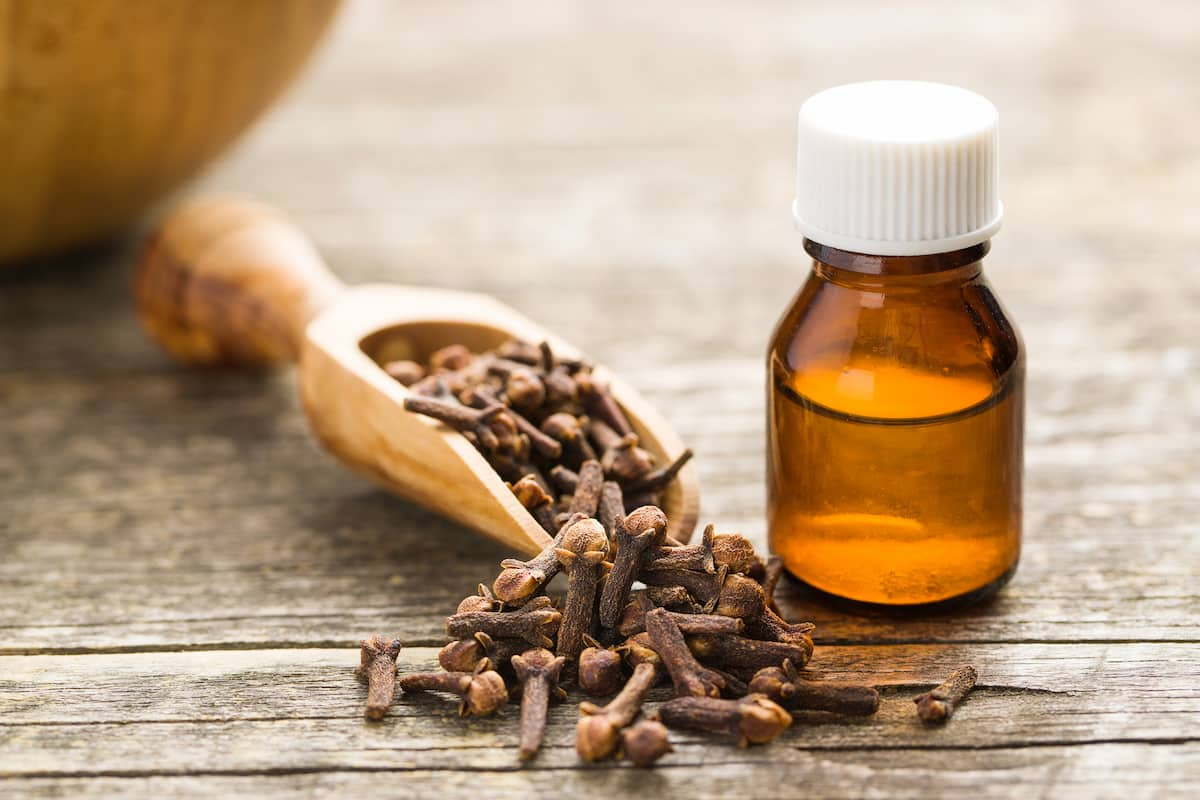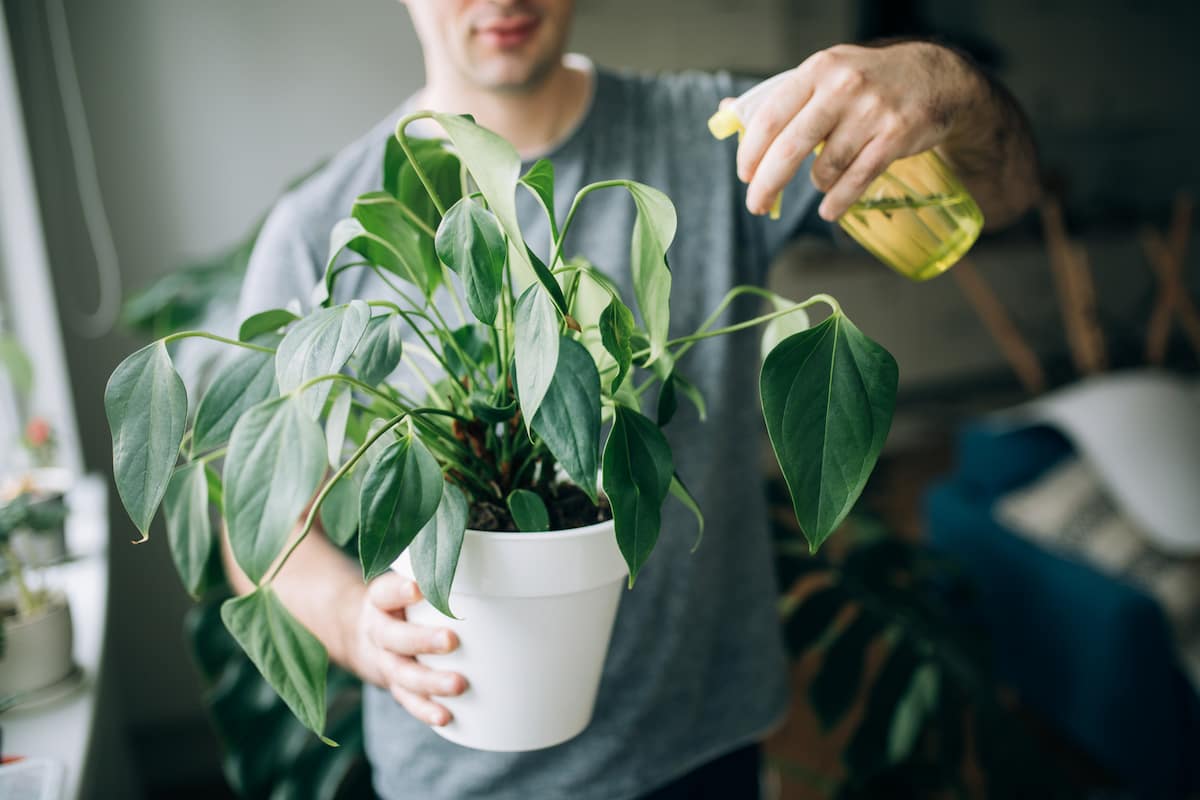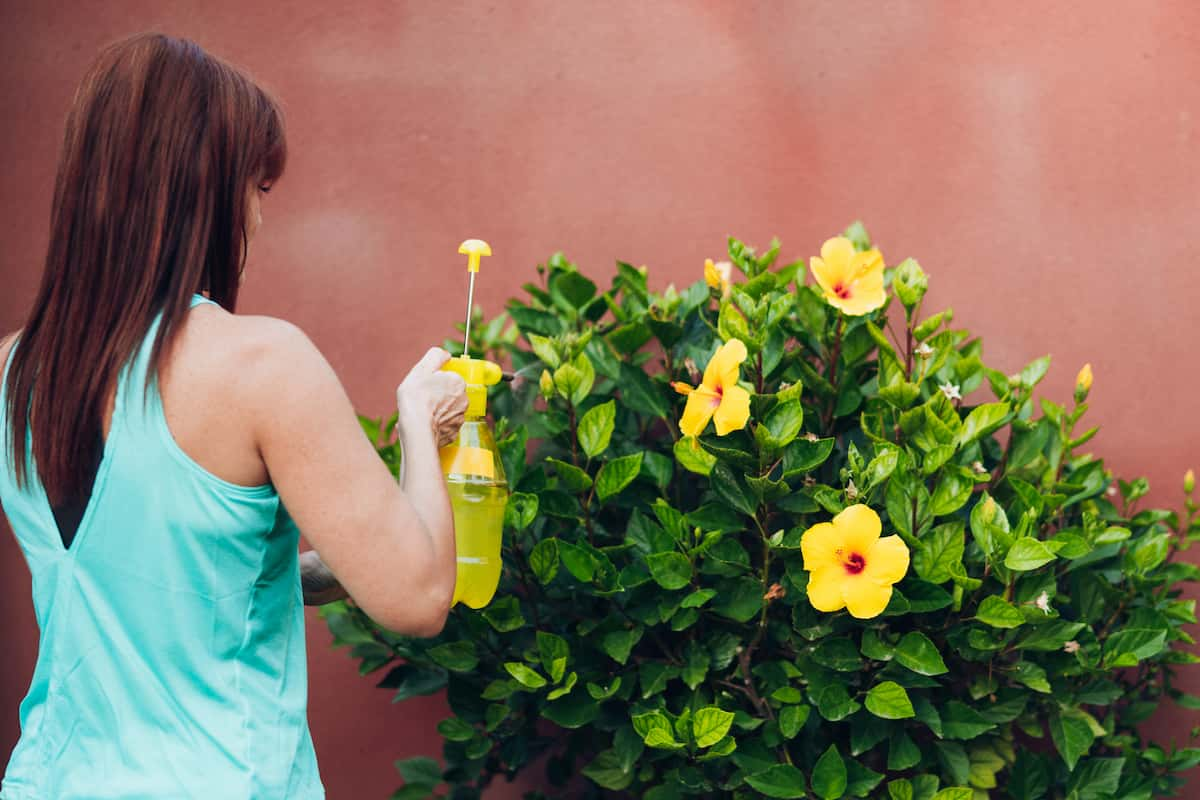Clove oil is a highly valued essential oil extracted from the dried flower buds of the clove tree, Syzygium aromaticum. This tree is originally from Southeast Asia but can now grow in other regions. The oil is produced by distilling the flower buds and other parts of the tree and has a distinctive spicy aroma. Clove oil has been used for centuries in medicine, aromatherapy, and as a natural pesticide. Its many benefits include repelling insects, preventing fungal growth, and stimulating plant growth.

What is Clove Oil?
Clove essential oil is derived from the dried flower buds of the clove tree, known scientifically as Eugenia caryophyllata or Syzygium aromaticum. This oil is produced through steam distillation and is distinct from clove leaf oil, which has a different aroma and properties.
Clove has been used for centuries for its various benefits, including reducing dental pain, repelling insects, promoting blood circulation, promoting hair growth, and treating sore throat and fungal infections. The clove tree is native to Indonesia and grown in other tropical regions such as Sri Lanka, Madagascar, and India. It can grow tall, producing green and pink leaves, redbuds, and white blossoms.
Benefits of Clove Oil in Your Home Garden Plants
Clove oil offers numerous benefits for home garden plants. Its primary use is as a traditional toothache pain treatment due to its natural antimicrobial and pain-relieving properties. Clove oil is also a powerful antioxidant, boosting the immune system and promoting better blood circulation. It has been used in home remedies for treating diarrhea, nausea, indigestion, and flatulence.
Additionally, clove oil has stress-relieving properties, can alleviate pain in the musculoskeletal system, and repel insects and pests. It is also used in skincare to treat acne and provide anti-aging benefits. Clove oil may alleviate respiratory problems and improve heart health by dilating arteries and preventing platelets from adhering together. Its potential in cancer research is also being considered.
How to Apply Clove Oil to Your Home Garden Plants
- First, dilute the clove oil by combining 1-2 drops with 1 liter of water. This solution is effective and will not damage your plants.
- Pour the mixture into a spray bottle: Once the clove oil has been diluted, pour the mixture into a spray bottle. This will facilitate the application of the solution to the vegetation.
- Shake vigorously: Shake the spray bottle to distribute the clove oil uniformly throughout the water. This will ensure that the solution is evenly applied to your plants.
- Before applying the clove oil solution to your plants, try it on a small, inconspicuous portion of one of the plants. This will help you ensure that there are no negative side effects.
- Once you have determined the clove oil solution is safe, apply it to your plants. Cover all surfaces, including the leaves, stems, and undersides.
- Reapply as needed: To maintain protection against pests and diseases, reapply the clove oil solution every 7 to 10 days or after significant rainfall. This will aid in keeping your flora healthy and pest-free.
- Some plants, including ferns, orchids, and succulents, may be sensitive to clove oil, so use caution when applying it. Before administering the solution to sensitive plants, it is always prudent to conduct a spot test.
- Keep the clove oil solution in the following conditions: The remaining clove oil solution should be kept in a cool, dark location for future use.
- Eliminate any new solution: Pour any unused solution down the drain or dispose of it in the garbage. It could harm other vegetation if poured into the soil or garden.
In case you missed it: Frequently Asked Questions About Clove Farming

When to Apply Clove Oil to Your Home Garden Plants
- Clove oil can be used for various purposes in gardening, such as repelling garden pests, fighting fungus, attracting pollinators, killing weeds, keeping away rodents and pets, treating insect bites and stings, repelling mosquitoes, disinfecting surfaces, and setting the mood.
- Clove oil can be mixed with other essential oils like rosemary, peppermint, lemongrass, cedarwood, thyme, sage, tea tree, and citronella to create natural pesticides and fungicides.
- To make an essential oil pesticide, combine clove oil with other oils like peppermint, tea tree, cedarwood, and thyme oil with four oz. of water in a spray bottle, and use a dropper, 15 drops of each oil. The resulting oil solution can be sprayed on plants and soil early morning or evening.
How to Make Clove Oil for Your Home Garden Plants
- Gather the necessary materials, including whole cloves, a carrier oil (such as coconut or olive oil), a jar with a lid, a double boiler or a saucepan, and a heat-resistant bowl.
- Crush the cloves to release their essential oils. You can do this with a mortar and pestle or by placing the cloves in a plastic bag and using a rolling pin or similar tool.
- Combine the crushed cloves and carrier oil in a jar, using a ratio of one part cloves to four parts oil.
- Stir the mixture thoroughly and seal the jar with the lid.
- Place the jar in a warm, dark location for two weeks. This allows the oil to infuse with the clove aroma and flavor.
- After two weeks, strain the mixture through a cheesecloth or coffee filter into a clean bowl or jar. Discard the solids.
- Rinse the original jar and transfer the strained oil back into it.
- In a double boiler or heat-resistant bowl, gently heat the oil until it reaches a temperature of 150°F (66°C). This helps to sterilize the oil and extend its shelf life.
- Store the Clove oil prepared in a cool, dark place, away from sunlight and heat sources. It should keep for up to six months.
Is Clove Oil Safe for Organic Agriculture?
Clove oil is safe for use in sustainable farming. Natural and non-toxic, it has been approved for use in organic cultivation by groups like the USDA National Organic Program.
Does Clove Oil Kill Bacteria?
Clove oil has been demonstrated to have antibacterial properties and can effectively eradicate bacteria. It contains eugenol, which has been shown to possess potent antibacterial properties against various bacteria.
In case you missed it: How to Create Pollinator Gardens: DIY in 10 Steps

Conclusion
Clove oil can benefit home garden plants by acting as a natural insecticide, fungicide, and herbicide. It can be applied by diluting it in water and spraying it on the plants or soil. Apply during the morning or evening and avoid overuse to prevent harm to beneficial insects.
- Feed Your Flock for Less: Top 10 Tips to Save on Chicken Feed
- Ultimate Guide to Ossabaw Island Hog: Breeding, Raising, Diet, and Care
- Hatching Answers: The Top 10 Reasons Your Chickens Aren’t Laying Eggs
- Eggs and Economics: Breaking Down the Cost of Raising Backyard Chickens
- Defend Your Greens: Proven Methods to Keep Iguanas Out of Your Garden
- Ultimate Guide to Cinnamon Queen Chicken: A Comprehensive Guide for Beginners
- Ultimate Guide to California Tan Chicken: Breeding, Raising, Diet, Egg-Production and Care
- Ultimate Guide to Marsh Daisy Chicken: Breeding, Raising, Diet, and Care
- 10 Types of Chicken Farming Businesses You Can Start for Profits